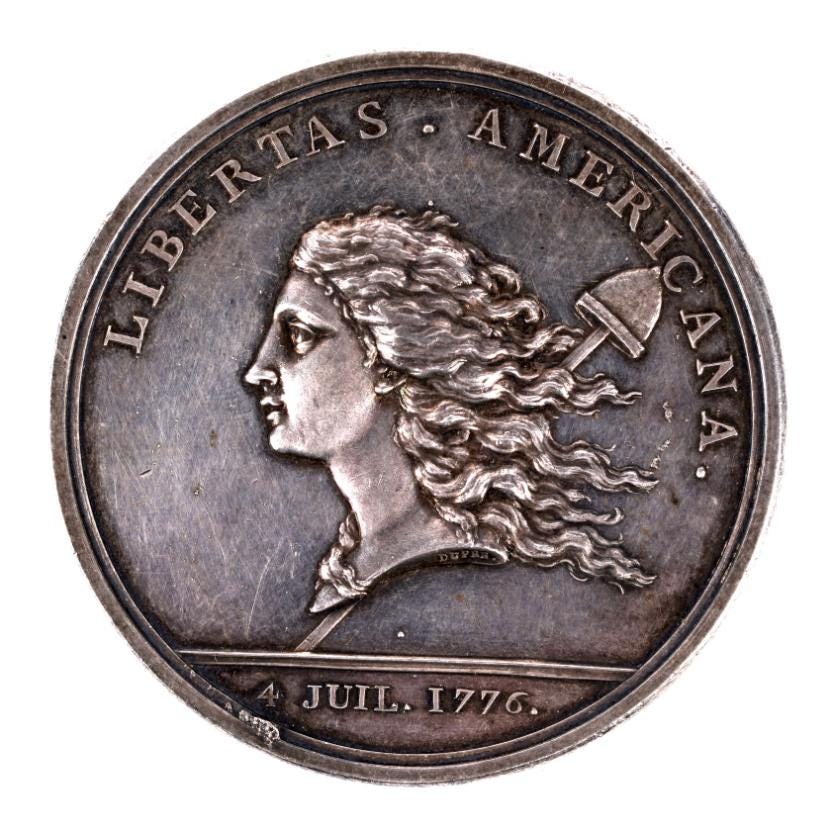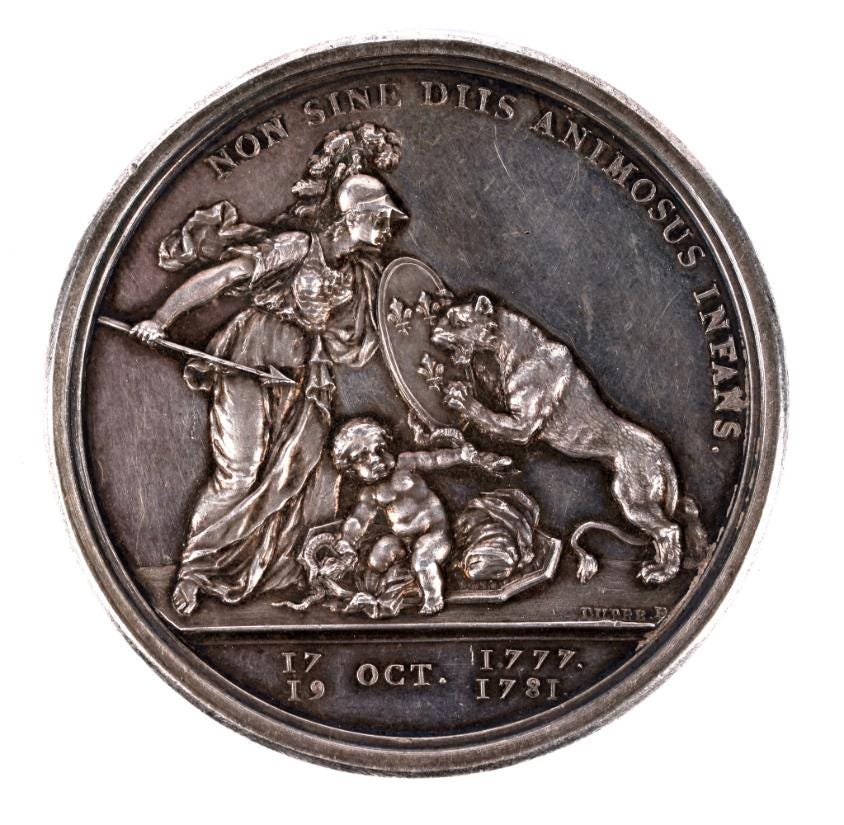Tynemouth discovery links to American Revolution
Celebrated piece of American history found on Tyneside. Tony Henderson reports
One of the most famous and sought after medals relating to American history, is to be sold after surfacing on Tyneside.
The 18th century silver Libertas Americana medal, made to commemorate the American Revolution, was discovered during a valuation day held in Tynemouth by Newcastle auctioneers Anderson & Garland.
It is expected to fetch between £50,000–£80,000 (approximately $70,000–$110,000) in Anderson & Garland’s Fine Silver Auction on July 22, but the record for such a piece was set in August last year for $336,000 (£251,000).
A member of the public brought the medal to the valuation event, unaware of its importance or value.
Upon inspection by the auction house's experts, the rarity and importance of the piece were recognised, and it was sent for professional grading by the Numismatic Guaranty Corporation.
The Libertas Americana medal is one of the most celebrated medals in American numismatic history. Commissioned by Benjamin Franklin in 1782 and produced in Paris in 1783, it commemorates the United States’ independence and the military victories at Saratoga in 1777 and Yorktown in 1781, which secured French support during the American Revolutionary War.
In 1752 Franklin, publisher, author, inventor and scientist, conducted the famous kite-and-key experiment to demonstrate that lightning was electricity and soon after invented the lightning rod.
Franklin played an important role as one of eight Founding Fathers, helping draft the Declaration of Independence and the U.S. Constitution.
Fred Wyrley-Birch, director at Anderson & Garland said: “It is a rare privilege to handle an object so steeped in the story of nations. The Libertas Americana is more than just a medal – it is a symbol of liberty, diplomacy, and shared struggle.
“Finding such a pristine example, untouched for generations and preserved in a family home, is the kind of discovery auctioneers dream of.”
The obverse of the medal features the goddess Liberty. The reverse (pictured above) features the infant Hercules representing the United States being attacked by a lion representing Britain.
The infant, who is shown strangling two snakes, is being protected by Athena who represents France.
The Latin motto, Non sine diis animosus infans, taken from the Roman poet Horace, translates as “the infant is not bold without the aid of the gods.” The symbolism represents the courage of the fledgling American nation and the indispensable support of France.
Historical records suggest that only a small number were struck in silver, reserved for dignitaries including the President of Congress, George Washington, and French ministers.




